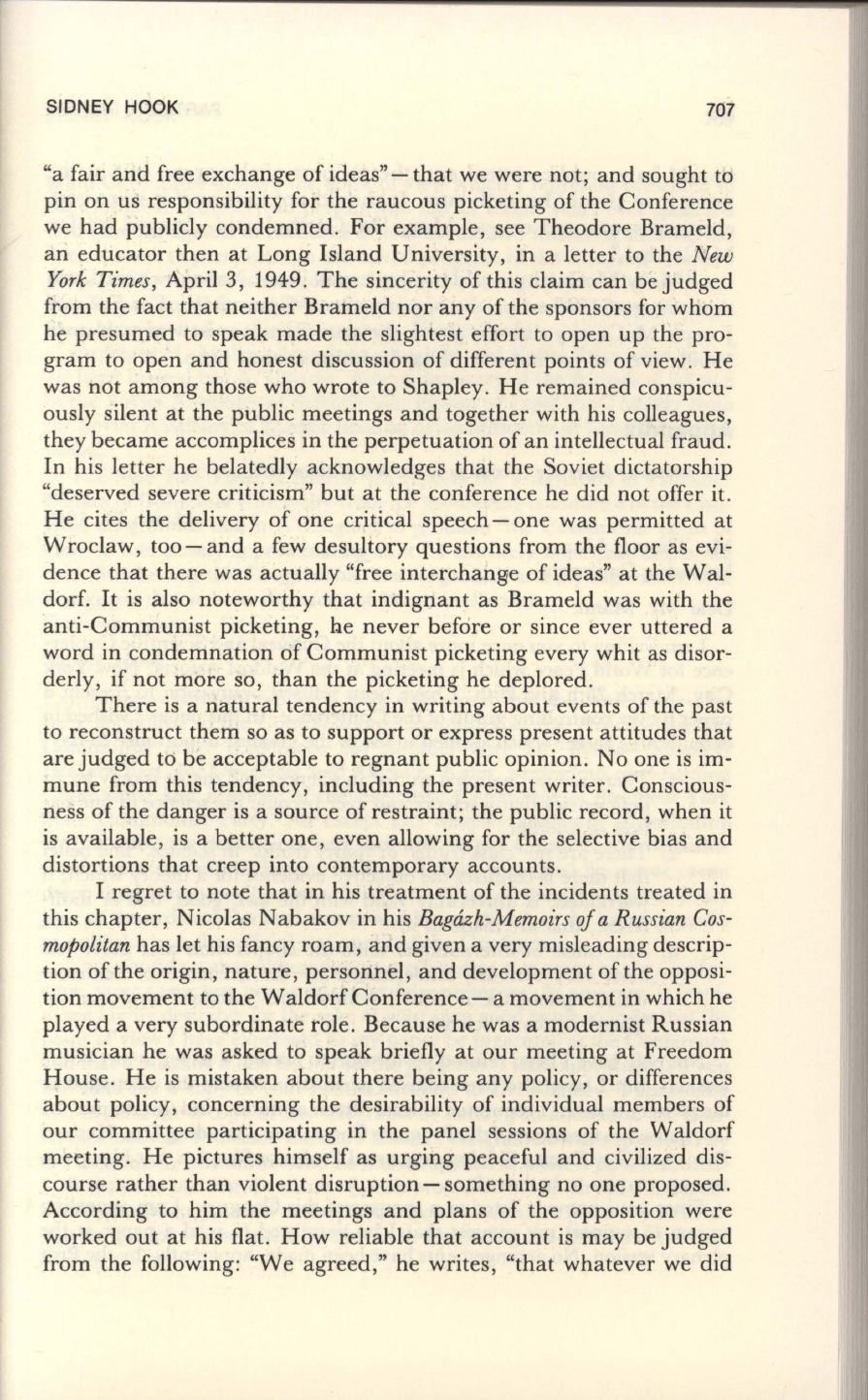
SIDNEY HOOK
707
"a fair and free exchange of ideas"- that we were not; and sought to
pin on us responsibility for the raucous picketing of the Conference
we had publicly condemned. For example, see Theodore Brameld,
an educator then at Long Island University, in a letter to the
New
York Times,
April 3, 1949. The sincerity of this claim can be judged
from the fact that neither Brameld nor any of the sponsors for whom
he presumed to speak made the slightest effort to open up the pro–
gram to open and honest discussion of different points of view. He
was not among those who wrote to Shapley. He remained conspicu–
ously silent at the public meetings and together with his colleagues,
they became accomplices in the perpetuation of an intellectual fraud.
In his letter he belatedly acknowledges that the Soviet dictatorship
"deserved severe criticism" but at the conference he did not offer it.
He cites the delivery of one critical speech- one was permitted at
Wroclaw, too-and a few desultory questions from the floor as evi–
dence that there was actually "free interchange of ideas" at the Wal–
dorf. It is also noteworthy that indignant as Brameld was with the
anti-Communist picketing, he never before or since ever uttered a
word in condemnation of Communist picketing every whit as disor–
derly, if not more so, than the picketing he deplored .
There is a natural tendency in writing about events of the past
to reconstruct them so as to support or express present attitudes that
are judged to be acceptable to regnant public opinion. No one is im–
mune from this tendency, including the present writer. Conscious–
ness of the danger is a source of restraint; the public record, when it
is available, is a better one, even allowing for the selective bias and
distortions that creep into contemporary accounts .
I regret to note that in his treatment of the incidents treated in
this chapter, Nicolas Nabakov in his
Bagazh-Memoirs of a Russian Cos–
mopolitan
has let his fancy roam, and given a very misleading descrip–
tion of the origin, nature, personnel, and development of the opposi–
tion movement to the Waldorf Conference- a movement in which he
played a very subordinate role. Because he was a modernist Russian
musician he was asked to speak briefly at our meeting at Freedom
House. He is mistaken about there being any policy, or differences
about policy, concerning the desirability of individual members of
our committee participating in the panel sessions of the Waldorf
meeting. He pictures himself as urging peaceful and civilized dis–
course rather than violent disruption- something no one proposed.
According to him the meetings and plans of the opposition were
worked out at his flat. How reliable that account is may be judged
from the following: "We agreed," he writes, "that whatever we did


